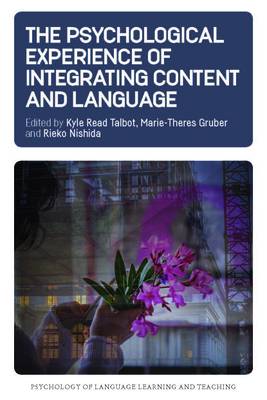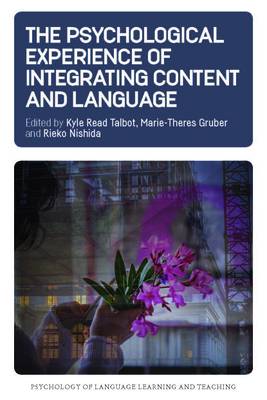
- Retrait gratuit dans votre magasin Club
- 7.000.000 titres dans notre catalogue
- Payer en toute sécurité
- Toujours un magasin près de chez vous
- Retrait gratuit dans votre magasin Club
- 7.000.0000 titres dans notre catalogue
- Payer en toute sécurité
- Toujours un magasin près de chez vous
The Psychological Experience of Integrating Content and Language
96,95 €
+ 193 points
Description
This book explores the psychology of teaching and learning a subject through a second or other language. It highlights the challenges and benefits of teaching and learning in integrated content and language settings and covers themes such as identity, self-concept, cognition, beliefs, well-being, interventions and professional development.
Spécifications
Parties prenantes
- Editeur:
Contenu
- Nombre de pages :
- 328
- Langue:
- Anglais
- Collection :
- Tome:
- n° 12
Caractéristiques
- EAN:
- 9781788924283
- Date de parution :
- 05-02-21
- Format:
- Livre broché
- Format numérique:
- Trade paperback (VS)
- Dimensions :
- 156 mm x 234 mm
- Poids :
- 458 g

Les avis
Nous publions uniquement les avis qui respectent les conditions requises. Consultez nos conditions pour les avis.





